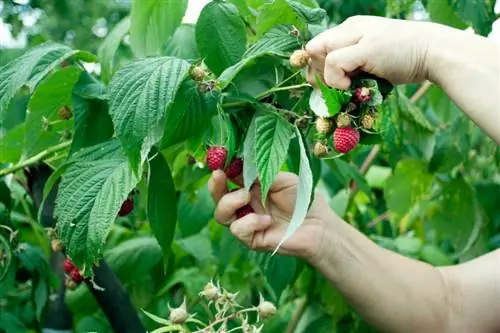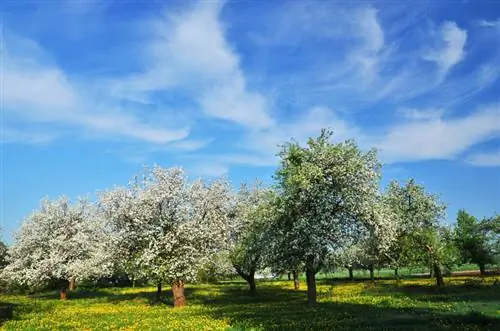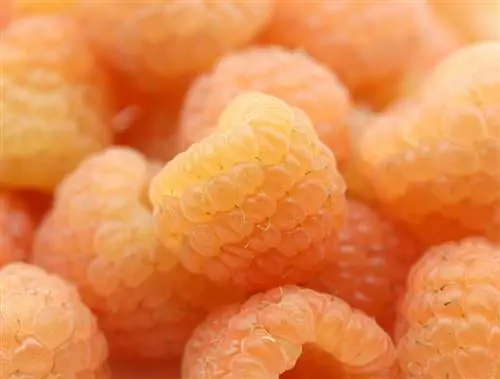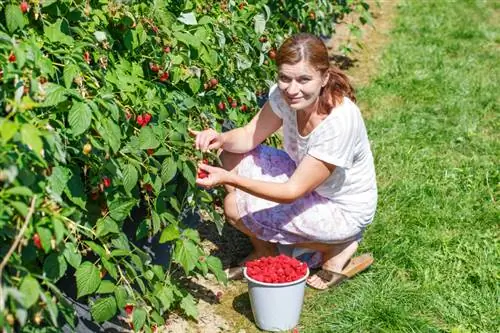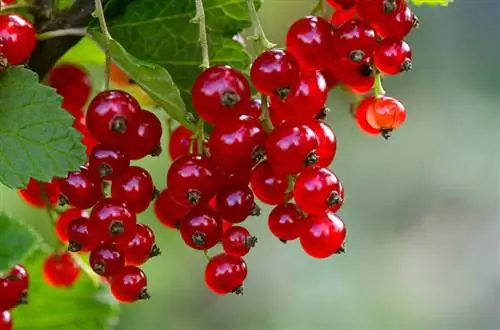- Author admin leonars@hobbygardeners.com.
- Public 2023-12-16 16:46.
- Last modified 2025-01-23 11:19.
The location of the raspberry bushes is particularly important for a rich harvest. You can only harvest large, sweet fruits if the plants receive enough sun, light and moisture.
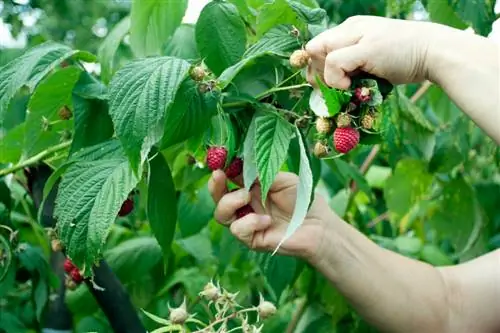
What is the best location for raspberries?
The ideal location for raspberries offers sufficient sun, wind protection, loose, nutrient-rich soil, even moisture without waterlogging and enough distance from other berry plants. Regular weeding and a layer of mulch are also helpful.
Conditions for a rich raspberry harvest
Even though raspberries are generally described as undemanding garden inhabitants, you should plant the bushes in a suitable location.
Only when the fruits receive enough sun do they grow nice and large and get the typical sweet raspberry aroma.
You can create the best conditions by:
- Sunny place
- Windbreak
- Loose soil without compaction
- Nutritious soil
- Even moisture
- Avoiding waterlogging
- Regular weeding
A loose soil is particularly important. The rain or irrigation water must be able to drain well. Otherwise waterlogging will occur.
If there is waterlogging, there is a risk that the shrubs will suffer from root rot. This is a fungal disease that is promoted by accumulated moisture.
Weeds under the bushes should be removed. Cover the ground with a layer of mulch to prevent weeds from emerging.
Keep your distance from other berry plants
Raspberries like to be among themselves. They are not suitable as a mixed culture.
Never plant raspberries in close proximity to other berry bushes. The bushes compete for space and deprive each other of necessary nutrients.
Choose a location where there have been no other berries in previous years. You should only plant the place with raspberries again after several years.
Tips & Tricks
By choosing the right location, you not only ensure a richer harvest. They also protect your raspberries from raspberry beetle infestation. This pest particularly likes to attack raspberries that grow in shady places.

